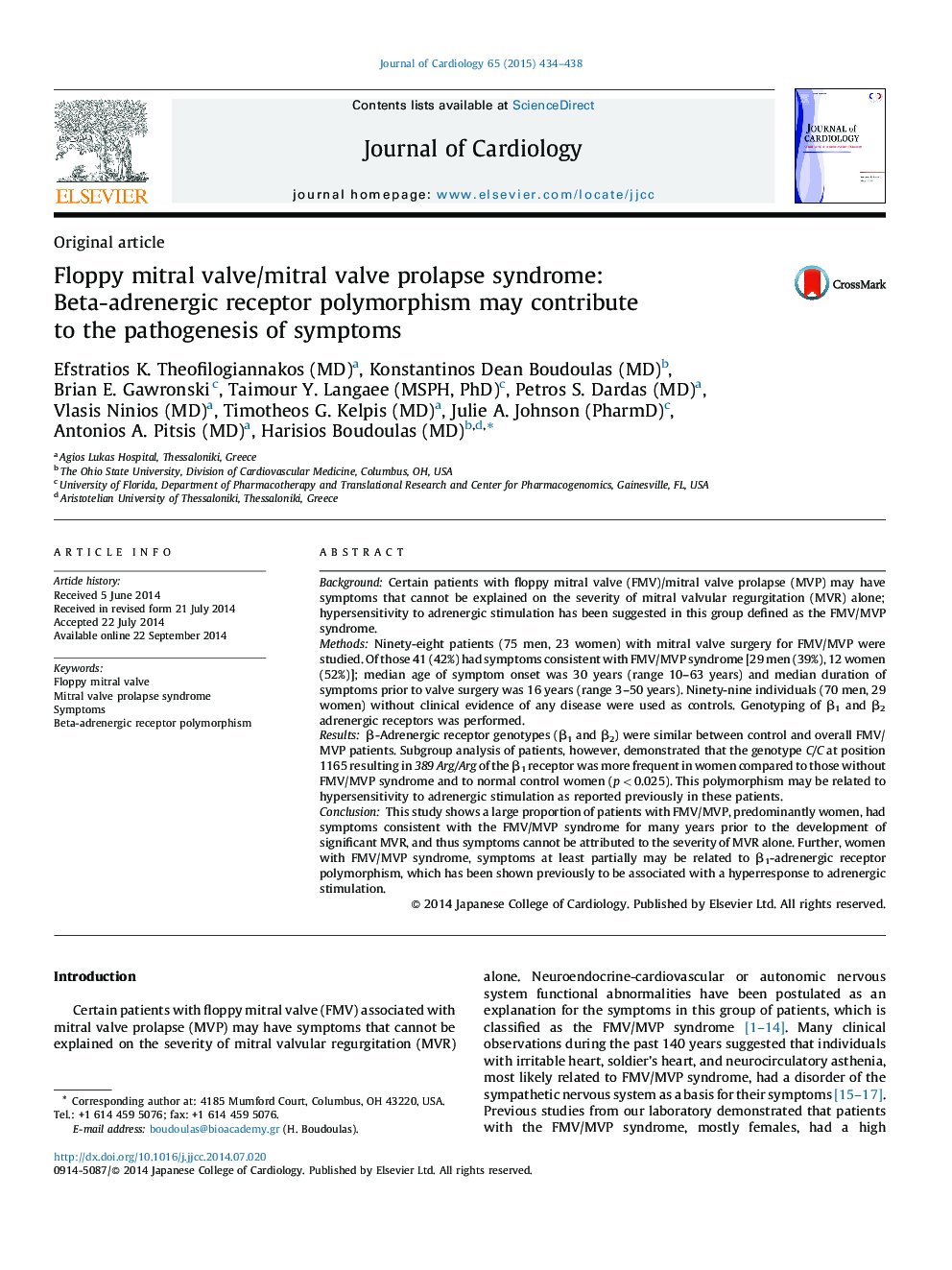| Article ID | Journal | Published Year | Pages | File Type |
|---|---|---|---|---|
| 2962981 | Journal of Cardiology | 2015 | 5 Pages |
BackgroundCertain patients with floppy mitral valve (FMV)/mitral valve prolapse (MVP) may have symptoms that cannot be explained on the severity of mitral valvular regurgitation (MVR) alone; hypersensitivity to adrenergic stimulation has been suggested in this group defined as the FMV/MVP syndrome.MethodsNinety-eight patients (75 men, 23 women) with mitral valve surgery for FMV/MVP were studied. Of those 41 (42%) had symptoms consistent with FMV/MVP syndrome [29 men (39%), 12 women (52%)]; median age of symptom onset was 30 years (range 10–63 years) and median duration of symptoms prior to valve surgery was 16 years (range 3–50 years). Ninety-nine individuals (70 men, 29 women) without clinical evidence of any disease were used as controls. Genotyping of β1 and β2 adrenergic receptors was performed.Resultsβ-Adrenergic receptor genotypes (β1 and β2) were similar between control and overall FMV/MVP patients. Subgroup analysis of patients, however, demonstrated that the genotype C/C at position 1165 resulting in 389 Arg/Arg of the β1 receptor was more frequent in women compared to those without FMV/MVP syndrome and to normal control women (p < 0.025). This polymorphism may be related to hypersensitivity to adrenergic stimulation as reported previously in these patients.ConclusionThis study shows a large proportion of patients with FMV/MVP, predominantly women, had symptoms consistent with the FMV/MVP syndrome for many years prior to the development of significant MVR, and thus symptoms cannot be attributed to the severity of MVR alone. Further, women with FMV/MVP syndrome, symptoms at least partially may be related to β1-adrenergic receptor polymorphism, which has been shown previously to be associated with a hyperresponse to adrenergic stimulation.
